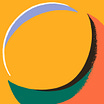The screws are tightening on the Belarus President, Alexander Lukashenko, and he’s lashing out. Lukashenko is often described as ‘Europe’s Last Dictator’. The sobriquet doesn’t do him justice. He, and the regime, are behaving like thuggish, vindictive gangsters.
The attempt to force the Belarusian sprinter Krystsina Tsimanouskaya onto a plane from the Tokyo Olympics to Minsk came as the Belarusian opposition leader Sviatlana Tsikhanouskaya was en-route to London to see Boris Johnson. She had already secured support in the USA. The events are linked as is, probably, the potential murder of the Belarusian activist Vitali Sishov in Ukraine.
Lukashenko who ‘won’ an improbable sixth term in office last year is feeling the pressure and playing his cards. This column has mentioned before how the western powers are nervous about helping to create a situation where their support for the opposition pushes the president to the brink of losing power and he brings in the Russian army thus strengthening Russia against NATO. Last week he gave a reminder declaring that his 500,000 security personal could deal with future demonstrations but “if it is not enough, all Russian armed forces will be brought in….we won’t hesitate.”
That was the warning to outside powers. The actions against Tsimanouskaya are for the domestic audience. All opposition to Lukashenko, even mild criticism, is met with force. Tsimanouskaya’s ‘crime’ was to criticise her coaches for entering her into a race for which she had not trained for because other Belarusian athletes had not completed their anti-doping tests and so could not compete. They reacted by trying to force her onto a plane home.
The reasons for this monstrous overreaction become more understandable when you learn that the head of the Belarus Olympic Committee is none other than Viktor Lukashenko, son of the president, and presumed successor. Father and son were both banned from attending the games. To their credit the Japanese gave the athlete police protection, and Poland offered her sanctuary. As she boarded a flight, Tsimanouskaya wore a pair of sunglasses bearing the message: ‘I Run Clean’ – the implication was that some in the team, overseen by the president’s son, do not.
Back home the population were once again reminded that the regime will go after its opponents wherever they are. The death of Vitali Sishov is the subject of a criminal inquiry but there are indications that he may have been murdered. Sishov was living in exile in Ukraine and last week had told friends he was being followed. On Monday, he went for a run in a Kiev park but didn’t return, his body was found hanged from a tree. Reports suggest the death was made to look like suicide, but signs of a beating, including a broken nose, mean the police are keeping an open mind. Belarus KGB teams are known to operate in Ukraine and the drive from Kiev to the Belarus border is just over two hours.
The KGB were also involved in the hijacking in May of a Ryanair flight which was tricked into landing in Minsk whereupon the activist Roman Protasevich was hauled from the aircraft and thrown into jail. He is now under house arrest.
This act of piracy follows the arrest of up to 35,000 people since demonstrations broke out following last August’s fraudulent election. Many have been beaten and reports of torture are widespread. Hundreds of raids continue against non-governmental organisations and independent media, and dozens of journalists are either in custody awaiting trial or already serving prison terms.
These actions are why so many countries have imposed sanctions on the regime and why opposition leader Sviatlana Tsikhanouskaya wants more, even while acknowledging they will cause pain to ordinary people. She says: “It can be painful in short-term perspective but people are suffering now because of the regime, not because of sanctions.”
The EU has led the way with the UK working in tandem on many sanctions. Tsikhanouskaya says her meeting with Boris Johnson this week went well. What probably worries Lukashenko more was her visit to Washington. She met President Joe Biden, National Security Advisor Jake Sullivan, Secretary of State Anthony Blinken, and senior members of Congress. Not bad for the opposition leader of a country of just 9.5 million people. The result was an indication of more sanctions and the creating of a ‘Friends of Belarus Caucus’ in Congress. By no co-incidence it will be hosted in the Lithuanian Embassy. Tishanouskaya lives in exile in Lithuania.
The Baltic state is paying a price for its hospitability, as indeed is the EU. Prime Minister Ingrida Simonyte says Belarus is using migrants as a “tool of hybrid war” and accuses Lukashenko of opening his border to allow them into her country. This year about 3,000 migrants have been apprehended at the border, that’s 37 times the total for 2020. A majority are from Iraq where extra flights from Baghdad are being added to deal with demand. Recent weeks have seen the arrival of growing numbers of Afghans who fear what lies ahead after the hasty U.S. military withdrawal.
Hybrid warfare, state sanctioned criminality and oppression have led to a hardening of attitudes in the NATO countries towards Belarus. Tougher sanctions look likely, but there’s also a recognition that the potential for Russia to strengthen its position via Belarus needs to be met. The defence posture to prepare for a conventional attack by Russia has been significantly improved by Poland’s decision to buy 250 Abrams tanks from the US to add to the F-35 fighter jets and Patriot air defence system.
The potential of handing Russia a victory remains a brake on tougher measures, but slowly more countries are coming to the view that it may be a risk that has to be taken.




